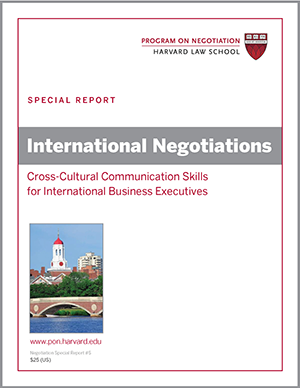
In many cultures, alcohol consumption plans a central role in the negotiation process. Members of other cultures, particularly Islamic ones, adhere to strict abstinence; the presence of alcohol may offend these negotiators.
Understanding such cultural norms and expectations – and knowing when a foreigner can deviate from them with impunity – can be critical for building a relationship and reaching agreement. In this article, we discuss the importance of overcoming cultural barriers in negotiations through an exploration of cultural norms as it relates to dealmaking.
To Toast or Abstain: Alcohol and Negotiation
In the West, alcohol is most often consumed to celebrate a deal. Elsewhere, drinking sometimes initiates a negotiation. It’s not uncommon, for instance, for Russian managers to begin morning talks with a series of vodka toasts. Similarly, in China, negotiations are often opened with banquets that include elaborate toasts to the new partnership.
In these settings, a refusal to drink may be misinterpreted as a sign of low interest or lack of trust. (Though, in some parts of China, it is acceptable to stop drinking after the first two rounds of toasts. For more information on negotiating in China, see also 4 Negotiation Tips for Bargaining in China where we discuss specific negotiation techniques negotiators can employ when dealing with counterparts from China).
When you do decline alcohol, be sure to offer your host a reason (“My doctor told me not to drink”). And when assembling your negotiation team, consider bringing along someone who drinks so that your team can derive the relationship-building benefits of communal and ritual drinking.
Related International Negotiation Article: A Crisis Negotiations Case Study – Chen Guangcheng, the United States, China, and Diplomatic Negotiations – How political dissident Chen Guangcheng and US diplomats negotiated his release from the People’s Republic of China. Learn how then-U.S. Secretary of State Hillary Clinton used an indirect approach to the bargaining table to secure Chen’s release.
Cross Cultural Communication: Translation and Negotiations – Learn about how negotiating through the filter of a translator impacts your bargaining at the negotiation table. When dealing with counterparts that speak a different language, negotiators need to keep these potential features of international negotiation in mind.
First published in 2013.




